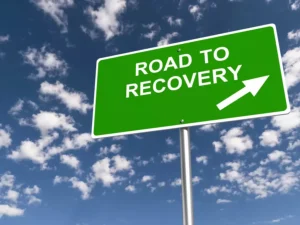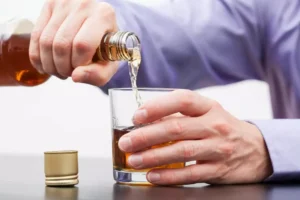
Forbes Health adheres to strict editorial integrity standards. To the best of our knowledge, all content is accurate as of the date posted, though offers contained herein may no longer be available. The opinions expressed are the author’s alone and have not been provided, approved or otherwise endorsed by our advertisers. If you identify with any of the scenarios above, try the expert tips below for reducing your alcohol consumption (or even eliminating it altogether). Emotionally, you may feel some anxiety or sadness about ending a chapter of your life and nervousness about the future.
How to offer support
- Letting others know about your choice to stop drinking may help motivate you to stick with your decision.
- Whatever the case, moving towards recovery can feel like a complicated process.
- From there, preparing, planning, finding support, and talking to a healthcare provider can help put you on a path to a successful recovery.
- But in some alcoholics, withdrawal is not just unpleasant—it can be life threatening.
Someone with AUD typically doesn’t want anyone to know the level of their alcohol consumption because if someone found out the full extent of the problem, they might try to help. Don’t allow the disappointments and mistakes of the past affect your choices today—circumstances have probably changed. However, for someone with an alcohol dependence, that expectation may turn out to be unreasonable. If the person is incapable of even being honest with themselves, it may not be reasonable to expect them to be honest with you. You don’t have to create a crisis, but learning detachment will help you allow a crisis—one that may be the only way to create change—to happen. You may still want to help your loved one when they are in the middle of a crisis.

Prepare for potential alcohol detox

Because he is a member of a support group that stresses the importance of anonymity at the public level, he does not use his photograph or his real name on this website. Natural consequences may mean that you refuse to spend any time with the person dependent on alcohol. What might seem like a reasonable expectation in some circumstances might be totally unreasonable when it comes to someone with an addiction. When your loved one swears to you and to themselves that they will never touch another drop of alcohol, you might believe them. If you have children, it’s important to protect them from unacceptable behavior as well. Do not tolerate hurtful or negative comments addressed towards them.
Support for Me and My Family
The type of medication a doctor prescribes depends on the type of addiction that is being treated. For example, there are different medications available to treat opioid, nicotine, and alcohol addiction. If you how to overcome alcoholism have an underlying mental health problem, such as anxiety or depression, it could worsen during the withdrawal phase. Healthcare providers can be very supportive and helpful while navigating these challenges.
- Practical steps can be taken towards recovery if you can remember, replace and re-engage.
- If your loved one is truly dependent on alcohol, they are going to drink no matter what you do or say.
- Alcohol detox, a partial hospitalization program or inpatient or outpatient treatment may be effective options.
- To drop the number of drinks you have each week, start with a daily limit.
- People often need to address past trauma or familial issues during this time.
- While the abstinence stage of withdrawal causes mostly physical symptoms, post-acute withdrawal is very psychological and emotional.
Alcohol Rehab
- Delirium tremens (DTs) is a serious condition that some people struggling with alcohol withdrawal go through.
- In particular, she’s committed to helping decrease stigma around mental health issues.
- Let’s address some of the most frequently asked questions about alcohol withdrawal, providing insight into different aspects such as medication, home remedies, dietary considerations and more.
- Anyone experiencing problems with alcohol can benefit from counseling and therapy.
- Detox can be done on an outpatient basis or in a hospital or alcohol treatment facility, where you may be prescribed medication to prevent medical complications and relieve withdrawal symptoms.
By acknowledging that a change is needed, it means that you recognize that there is a problem and have a desire to address it. Lembke warns that you’ll probably feel a lot worse before you start feeling better. Group therapy or a support group can help during rehab and help you stay on track as life gets back to normal. Drugs used for other conditions — like smoking, pain, or epilepsy — also may help with alcohol use disorder.
You may find a renewed interest in music during your detox and should pursue the distraction it offers from cravings or withdrawal symptoms. Like deep breathing, meditation can help you stay balanced and relaxed during your withdrawal. At times, it’s easy to forget why you entered recovery in the first place.

Medical Professionals

It doesn’t reach a certain level and remain there for very long; it continues to get worse until the person with an alcohol problem seeks help. When someone with alcohol dependency promises they will never drink again but a short time later are back to drinking as much as always, it is easy to take the broken promises and lies https://ecosoberhouse.com/ personally. You may think, “If they really love me, they wouldn’t lie to me.” One factor to remember is that the discomfort of withdrawal is only temporary. This thought process can be a useful mental tool when the physical pain of withdrawal is most severe. You’re likely to be in situations where you’ll be offered a drink.
Do not sell my personal information Privacy Policy and Terms of Use

